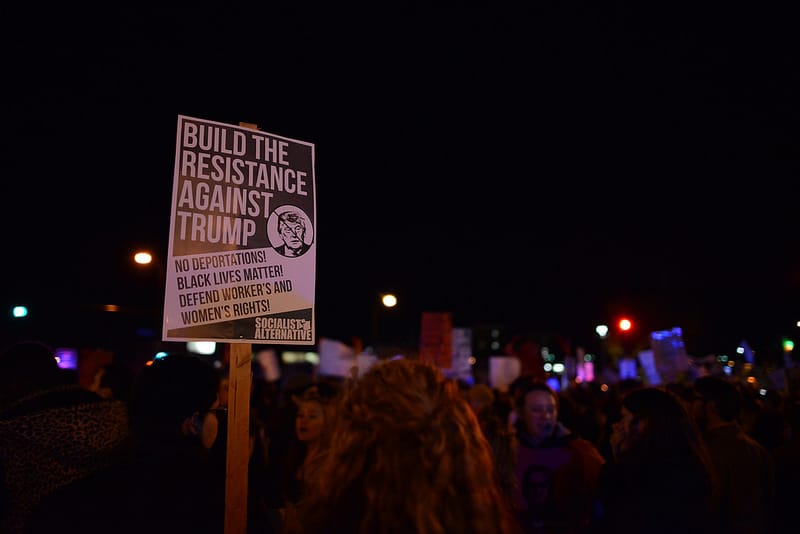| Can we finally leave the 2016 election season behind us, now? And no, that doesn’t mean starting the race for 2020. Leaders of various protests aimed at members of the Electoral College this week sounded almost quaint as they claimed their resistance was a demonstration that the president-elect doesn’t represent the will of the people. |
| | Americans tend to be naïve when it comes to judging mass movements. The few who showed up at the state capitol in Salt Lake City on Monday were indeed loud and offered an unprecedented challenge to the state’s six electors, but this does not equate to a movement of consequence. For a relevant example, look to South Korea, which just endured six weeks of massive street protests that culminated in the impeachment of President Park Geun-hye. By contrast, an opinion poll commissioned by Utahpolicy.com found 59 percent of Utahns feel confident about Donald Trump running the executive branch. That compared to the 45.5 percent who voted for him. Let’s hope Americans don’t see the need for South Korean-style protests any time soon. But in the meantime, can we acknowledge the difference between remaining vigilant as watchdogs over how our elected officials govern and the perceived need to forever protest how they came to power? Americans hold 50 separate democratic elections for president. It may be a complicated system, but this year it kept California from deciding for the rest of us, and it is in the nation’s interests to keep faith with a system rooted in the need to temper the power of large states. No doubt many of those Utahns polled feel as former presidential candidate John Kasich, who rejected a movement among faithless electors to vote for him. He said, “… this approach, as well meaning as it is, will only serve to further divide our nation, when unity is what we need." As a candidate, Kasich met with the combined Deseret News-KSL editorial boards. While he was clear about his dislike for Trump, he was equally clear about his respect for the way presidents are chosen, and he found a uniquely Utah way to express it. “When Karl Malone and John Stockton (played for the Utah Jazz), they went and played in the finals,” he said, noting, “… they never won a title, but they didn't say the fans ought to riot. They said, ‘We'll live with the result.’” This was at a time when Trump, the underdog, was the one warning of a rigged electoral system. As someone who shares many of the protesters’ concerns about Trump in the White House, I see wisdom in Kasich’s graciousness. It is part of an American tradition that, through the years, has replaced suspicions of unfairness with at least an outward expression of unity. The value of outward expressions should not be discounted. Let’s hope this election, odd as it was, does not mark the beginning of a new era marked more by perpetual contention than by those outward expressions, no matter how grudging. Monday’s Electoral College protests produced more “faithless” electors than any election since early in the 19th century. That may have been understandable, given how the popular vote swung toward Hillary Clinton and how intelligence agencies claim to have evidence Russia tried to influence the outcome. But there was an element of the theatrical evident on Monday, too. Maine’s David Bright couldn’t resist taking the symbolic equivalent of a selfie Monday by attempting to cast a vote for Bernie Sanders as a nod to Sanders’ young fans. As Jim Geraghty asked in the National Review, what about the 354,000 Maine voters who chose Clinton, the winner in that state? “Don’t they deserve some encouragement, too?” Democracy can be an elusive concept. In 1824 and 1876, men were elected who supposedly lost the popular vote. But in both years, not all states held presidential elections. They let their legislatures decide. We don’t know who might have won in a popular vote. It took awhile for the nation to become obsessed with democratic state elections for president. Only Mr. Trump can determine whether his administration is a success. But that outcome will have little relevance to the way he was chosen, which is why it’s time to move on. |


 RSS Feed
RSS Feed

